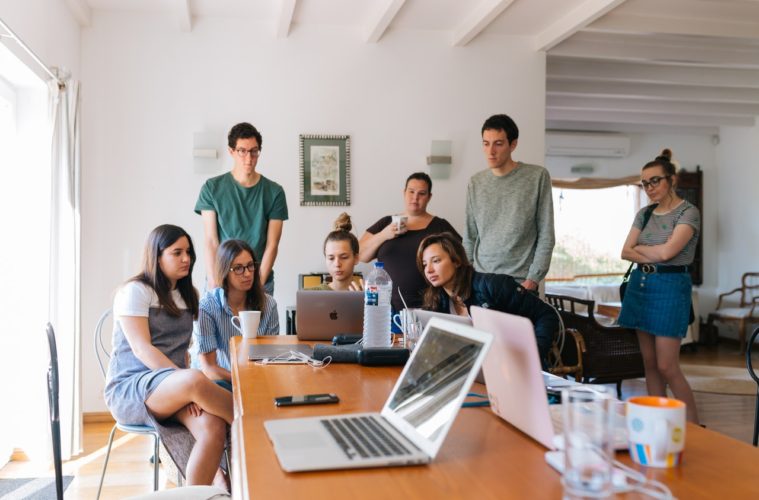Finding a job during or after college is about to get much more difficult. Employers affected by Covid-19 are canceling their work experience or reducing the recruitment of graduates, leaving thousands of students looking for an increasingly small number of opportunities.
Alex Cutts, a journalism graduate, missed internships at Sheffield Hallam University earlier this year. “They had over 1,000 applications, more than for any of their graduate programs in recent years,” she says. “I’m quite worried about finding work at the moment.”
Will “clearing plus” really make it easier to apply to university?
Read more
While it sounds intimidating, missing a work experience isn’t the end of the world. Laura Bromley, Career Counsellor at Lancaster University, explains: “The types of people employers are going to look for are those who have gone through a little bit of adversity, but can show what they have done to support themselves.”
Dan Hawes, a co-founder of the Alumni Recruitment Office, agrees. He says the key does what you can to answer the inevitable question: “What did you do during the lockdown?”
Start with a skills audit
It’s tempting to take any workout, but “don’t do anything,” Hawes warns. “Take a long look at what kind of skills you need to develop,” he adds. “Look for the gaps.”
Start by looking at job postings. Write down the skills you already have, as well as examples of where you have used them. Then list the ones you need to work on and use them to guide your efforts instead.
Get online work experience
Virtual internships and remote work experience are a good option. Many universities and employers run programs, research them first. They tend to be extremely competitive but are usually paid and will allow you to work on real projects.
Otherwise, see Inside Sherpa or Bright Network. These include pre-recorded content and hypothetical tasks. The advantage is that they are available on-demand year-round, and international students will not have to worry about visa limits.
It’s easy to find job training online, including job skills. Search FutureLearn and edX for free or low-cost options, or ask your tutors for recommendations.
Connect with your peers
Career networks flourished online during the lockdown and are more accessible for it. Chat rooms and virtual coffee breaks are a great way to glean industry knowledge. Conversations with peers could also lead to work experience and training opportunities. Follow companies on social media or research online to see what’s available in your area.
Hawes also suggests contacting your career department. “They may be able to put you in touch with the Alumni Society, which could be an untapped resource for finding work.”
Make your own experience
Bromley describes how a marketing student offered to help local businesses with promotions. This student discovered the job market and was able to talk to employers about the times she was in contact with clients.
Hawes says jobs aren’t always advertised. Speculative applications can take a bit of luck, but sometimes luck is all you need to get your foot in the door.
If you have any side activity of any kind, tell employers what you learned from it. The value isn’t in the benefits, it’s the experience you get from trying. Here it could be everything from marketing to problem-solving.
Focus on the skills rather than the setting
“Volunteer work, no matter how small or insignificant, is a huge opportunity in the long term,” says Hawes. Do IT is a good source for finding local roles. Academic societies are also valuable. Some are dedicated to volunteering and fundraising. Others can lead to a range of job skills, especially if you play an organisational role.
Bromley adds, “What are the issues and concerns in society right now? What can you do to support people? This could be organising community events or holding workshops in schools, what wow essays has been doing successfully as a help to students lately. Start with what you know and look for results that benefit others and your resume. ”
And do not neglect the experience gained at home and at leisure. These are good for showing off your soft skills – such as communication, creativity, and persuasion. Frame them professionally on your CV by selecting examples that are relevant to the workplace.
At the end of the day, there are tons of places to get experience, Hawes says. “We’ve already helped graduates during downturns and they’ve overcome it by being a little more creative, a little more proactive, and thinking laterally.” But he admits, “I don’t pretend it’s easy.”





